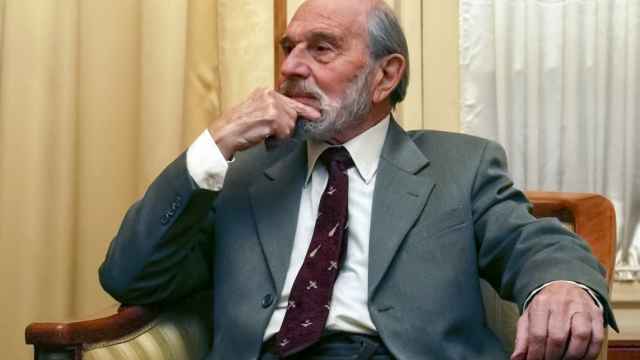The lawyer for a former U.S. marine accused of spying by Russia said on Tuesday that his client had been misled before his arrest and believed that a thumb drive handed to him in a hotel room had contained cultural rather than secret information.
Russia's Federal Security Serviced detained Paul Whelan, who holds U.S., British, Canadian and Irish passports, in a Moscow hotel room on Dec. 28.
Whelan, who denies the charges, was detained after receiving a thumb drive containing a list of all the employees of a secret Russian state agency, Russian online news portal Rosbalt.ru reported earlier this month, and Russian Foreign Minister Sergei Lavrov has said Whelan was "caught red-handed."
However, Vladimir Zherebenkov, Whelan's lawyer, told reporters on Tuesday that his client had unknowingly accepted secret information from someone.
"Paul was actually meant to receive information from an individual that was not classified," said Zherebenkov.
"These were cultural things, a trip to a cathedral, Paul's holiday...photographs. But as it turned out, it contained classified information."
The lawyer said Whelan had not been able to see what was on the thumb drive because he had been detained before he had a chance to do so.
Whelan appeared in a Moscow court on Tuesday where a judge rejected a request for him to be let out on bail.
Wearing a blue shirt and dark trousers, he looked calm but sombre as he stood inside a glass courtroom cage.
The court session was closed to reporters, but his lawyer said afterwards that Whelan had given a 15-minute speech to the court in which he had rejected the allegations against him in detail.
The lawyer declined to clarify if Whelan knew the individual who handed him the secret information.
A Message from The Moscow Times:
Dear readers,
We are facing unprecedented challenges. Russia's Prosecutor General's Office has designated The Moscow Times as an "undesirable" organization, criminalizing our work and putting our staff at risk of prosecution. This follows our earlier unjust labeling as a "foreign agent."
These actions are direct attempts to silence independent journalism in Russia. The authorities claim our work "discredits the decisions of the Russian leadership." We see things differently: we strive to provide accurate, unbiased reporting on Russia.
We, the journalists of The Moscow Times, refuse to be silenced. But to continue our work, we need your help.
Your support, no matter how small, makes a world of difference. If you can, please support us monthly starting from just $2. It's quick to set up, and every contribution makes a significant impact.
By supporting The Moscow Times, you're defending open, independent journalism in the face of repression. Thank you for standing with us.
Remind me later.






